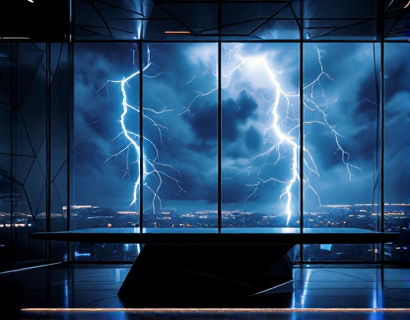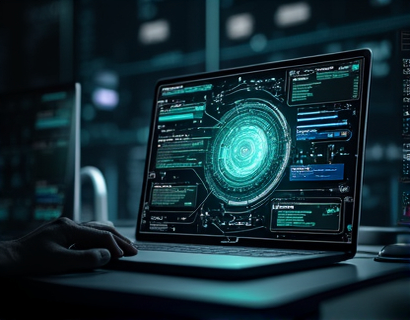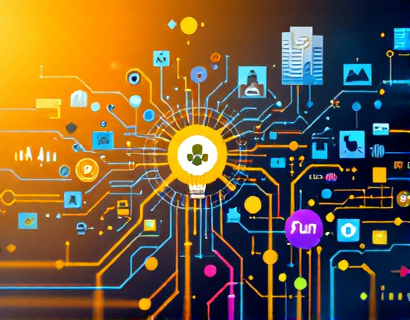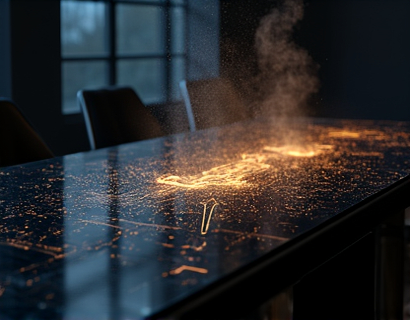Blockchain-Enhanced Notarization: Revolutionizing Document Security and Accessibility
In an era where digital transformation is reshaping industries, the need for secure, efficient, and transparent document management has become paramount. Traditional notarization processes, while crucial for ensuring the authenticity and legality of documents, often suffer from inefficiencies, lack of transparency, and vulnerability to tampering. This article delves into the transformative potential of blockchain-enhanced notarization, a pioneering approach that leverages decentralized technology to streamline document security and accessibility. By understanding the core principles of blockchain and its application in notarization, legal professionals and businesses can harness a future-proof solution that guarantees the integrity and authenticity of their documents.
Understanding Blockchain Technology
At its core, blockchain is a distributed ledger technology that records transactions across multiple computers in such a way that the registered transactions cannot be altered retroactively. This technology ensures transparency, security, and immutability. Each block in the chain contains a cryptographic hash of the previous block, a timestamp, and transaction data. The decentralized nature of blockchain means there is no single point of failure, making it highly resistant to hacking and data manipulation.
The inherent characteristics of blockchain make it an ideal candidate for enhancing document notarization. The immutable and transparent nature of blockchain ensures that once a document is notarized, its authenticity and integrity are preserved indefinitely. This eliminates the need for repeated verification processes and reduces the risk of document tampering.
Traditional Notarization Processes: Challenges and Limitations
Traditional notarization involves a series of steps, including document preparation, submission to a notary public, signing, and recording. While these processes are designed to ensure authenticity, they often suffer from several drawbacks. The centralized nature of traditional notarization relies heavily on trust in individual notaries and centralized institutions, which can be a single point of failure.
One major challenge is the lack of real-time verification. Documents must often be physically submitted and manually verified, leading to delays and inefficiencies. Additionally, the risk of document loss, damage, or tampering remains high due to the physical handling involved. These issues not only hinder efficiency but also compromise the security and reliability of the notarization process.
Blockchain-Enhanced Notarization: A Solution to Traditional Challenges
Blockchain-enhanced notarization addresses these challenges by providing a decentralized, transparent, and secure alternative. The process begins with the digitalization of documents, which are then uploaded to a blockchain network. Once uploaded, the document is assigned a unique cryptographic hash, ensuring its integrity and preventing any alterations.
The notarization process itself is automated through smart contracts, which are self-executing contracts with the terms directly written into code. When the necessary conditions are met, such as the identity verification of the signatories and the authenticity of the document, the smart contract executes the notarization. This automated process reduces human intervention, minimizes errors, and ensures consistency.
Key Features of Blockchain-Enhanced Notarization
1. Immutability: Once a document is notarized on the blockchain, it cannot be altered or deleted. This ensures that the notarization record remains intact and verifiable for as long as the blockchain exists.
2. Transparency: All transactions on the blockchain are visible to authorized participants, providing a clear and auditable trail. This transparency builds trust and accountability in the notarization process.
3. Security: The cryptographic techniques used in blockchain ensure that documents are protected against unauthorized access and tampering. The decentralized nature of the network further enhances security by eliminating single points of failure.
4. Efficiency: Automated smart contracts streamline the notarization process, reducing the time and effort required for manual verification and execution. This leads to faster turnaround times and improved productivity.
Identity Verification and Access Control
One of the critical aspects of blockchain-enhanced notarization is the robust identity verification and access control mechanisms. Users must undergo rigorous identity verification to ensure that only authorized individuals can access and notarize documents. This is typically achieved through a combination of Know Your Customer (KYC) procedures and digital identity solutions.
Once verified, users are granted access to the blockchain network where they can upload, notarize, and manage their documents. Access control ensures that only authorized parties can view or interact with the notarized documents, maintaining confidentiality and security.
Real-Time Verification and Compliance
The decentralized and transparent nature of blockchain enables real-time verification of notarized documents. Stakeholders can instantly confirm the authenticity and integrity of a document by checking its hash on the blockchain. This real-time verification is particularly valuable in cross-border transactions and international business, where ensuring document validity across different jurisdictions is crucial.
Moreover, blockchain-enhanced notarization simplifies compliance with regulatory requirements. The immutable and auditable nature of blockchain records provides a clear and tamper-proof history of document notarization, making it easier to meet regulatory standards and audit requirements.
Benefits for Legal Professionals and Businesses
For legal professionals and businesses, blockchain-enhanced notarization offers numerous advantages. The primary benefit is the enhanced security and integrity of documents, reducing the risk of fraud and disputes. The automated and transparent process also increases efficiency, allowing professionals to focus on higher-value tasks.
Additionally, the cost savings are significant. By eliminating the need for physical notary services and reducing the administrative burden, businesses can lower their operational costs. The speed and reliability of blockchain-enhanced notarization also improve client satisfaction and trust, giving businesses a competitive edge.
Use Cases in Various Industries
The applications of blockchain-enhanced notarization extend across various industries, including real estate, finance, healthcare, and supply chain management. In real estate, for instance, property deeds and contracts can be securely notarized and stored on the blockchain, ensuring their authenticity and ease of transfer. In finance, blockchain-enhanced notarization can streamline the verification of financial documents, reducing fraud and enhancing compliance.
In healthcare, patient records and consent forms can be securely managed and accessed by authorized personnel, ensuring patient privacy and data integrity. In supply chain management, the provenance and authenticity of goods can be verified at each stage, preventing counterfeiting and ensuring quality.
Challenges and Considerations
While the potential of blockchain-enhanced notarization is vast, there are several challenges and considerations to address. One major challenge is the regulatory landscape. As blockchain technology is still evolving, regulatory frameworks vary by jurisdiction, and there may be legal uncertainties surrounding the enforceability of blockchain-based notarization.
Another consideration is the adoption and integration of blockchain technology. Organizations must invest in the necessary infrastructure and training to implement and utilize blockchain-enhanced notarization effectively. Interoperability between different blockchain platforms and existing systems is also a critical factor to ensure seamless integration.
Future Prospects
Despite these challenges, the future of blockchain-enhanced notarization looks promising. As more jurisdictions recognize and adopt blockchain-based solutions, regulatory clarity will improve, fostering wider acceptance and implementation. Technological advancements will continue to enhance the scalability and user-friendliness of blockchain platforms, making them more accessible to a broader range of users.
The integration of artificial intelligence and machine learning can further optimize the notarization process, automating more steps and enhancing security measures. As the technology matures, we can expect to see widespread adoption across industries, transforming the way documents are managed and secured.










































